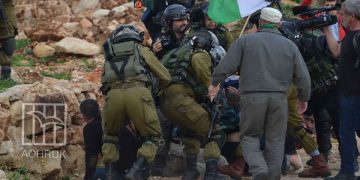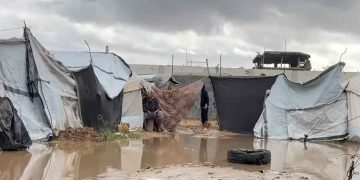Saudi activist Amani Al-Zain has now entered her sixth year in detention without a public trial or access to legal defence, following her arrest in May 2020 for comments made during an online video conversation. The detention stems from a recorded discussion with Egyptian activist Wael Ghonim, during which Al-Zain used a symbolic phrase interpreted as a critical reference to Crown Prince Mohammed bin Salman.
The term she used, “Abu Manshar” (Father of the Saw), was widely understood as a reference to the 2018 killing of journalist Jamal Khashoggi inside the Saudi consulate in Istanbul, a case that drew international condemnation and led to widespread allegations of state responsibility.
Since her arrest, Al-Zain has reportedly been held in conditions amounting to enforced disappearance. She has not been brought before a court in a public setting, and her family and legal representatives have been denied consistent contact. These conditions contravene both domestic legal guarantees and international human rights standards, including the United Nations Standard Minimum Rules for the Treatment of Prisoners.
Al-Zain’s case is not isolated. It reflects a broader pattern of restrictions on public freedoms and the criminalisation of peaceful expression in Saudi Arabia, where online or public criticism is frequently met with detention, intimidation, or state-imposed silence.
Reports indicate that the authorities have also placed pressure on the families of detainees and imposed restrictions on their ability to communicate or show public support, further isolating those held in custody and suppressing independent solidarity efforts.
Saudi Arabia is a state party to the International Covenant on Civil and Political Rights, which affirms the right to freedom of expression, including the right to seek, receive and impart information and ideas of all kinds, regardless of frontiers. Prolonged detention without charge or fair trial has been recognised under international law as a form of psychological ill-treatment and a serious breach of the principle of due process.
Documented practices such as denying contact with family or legal counsel, and detaining individuals in undisclosed locations, fall within the legal definition of enforced disappearance, a crime under international law that is not subject to a statute of limitations.
The ongoing detention of Amani Al-Zain continues to draw attention to the status of civil liberties in Saudi Arabia, where independent expression is increasingly curtailed. Her continued imprisonment, in the absence of a fair trial or access to legal safeguards, raises serious concerns regarding the Kingdom’s adherence to its international obligations.
There have been renewed calls for the immediate release of all individuals detained solely for expressing their views, and for an end to policies that extend punitive measures to families and social circles. The right to freedom of expression is not a discretionary privilege, but a fundamental human right.
























